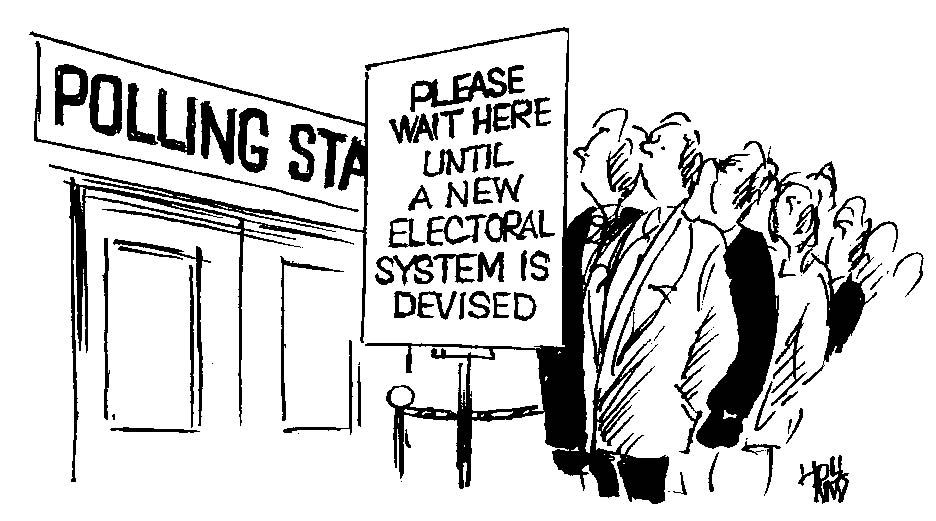‘You can do a lot of things at the seaside that you can’t do in town,’ sang my husband in a gurgling tone produced by a recent pull at his whisky glass.
‘You can do a lot of things at the seaside that you can’t do in town,’ sang my husband in a gurgling tone produced by a recent pull at his whisky glass. His outburst was a sort of distillery-sponsored tourettist parody of an innocent sentence I had just spoken: ‘You hear a lot of words at elections that you don’t hear all year.’
It’s funny that elections have always been held on a Thursday (at least, since 1935), for an old word for Maundy Thursday was Mandate Thursday. Those names come, of course, from the mandatum novum, the new commandment that Christ gave the Apostles. The mandate that voters give to MPs is of a more dubious status.
‘Strictly speaking,’ as the Daily News reminded readers in 1901, ‘there is no such thing in England as a mandate. Lord Salisbury was the first to introduce into English politics that essentially Jacobinical phrase.’ Even by 1901, the Daily News was fighting a rearguard action, for British politicians had long appealed to the idea in order to justify the behaviour of elected governments — or to attack their opponents.
Gladstone invoked a mandate in his crusade over Ireland. ‘In my opinion,’ he said in the Commons on 18 April 1887, ‘the majority of honourable gentlemen in this House had a mandate at the last election opposed to coercion.’
It is not easy to prove the claim by the Daily News that the Marquess of Salisbury introduced the phrase into English politics. But — good news for the very keen — the last two centuries of Hansard are now online, and that has enabled me to find Lord Salisbury talking about a mandate on 10 June 1872. He had spoken of a mandate in a debate about the Suez Canal in 1867 (strangely like debates on the same subject in 1956), but that was a mandate for action from international diplomacy, not from parliamentary election.
In 1872, he subtly defended the House of Lords as a guardian of the rights of the electorate. It was, he urged, the duty of the Lords ‘to regard ourselves in this matter as the agents of the Nation, and to see that the House of Commons, in thus tampering with the laws under which it was itself elected, has not transgressed the mandate it received’.
The man in mandate comes from manus, ‘hand’, just as the man in manifesto does. But the festo in manifesto shares an origin with infestus ‘hostile, harmful’. We shall see just how harmful shortly.





Comments